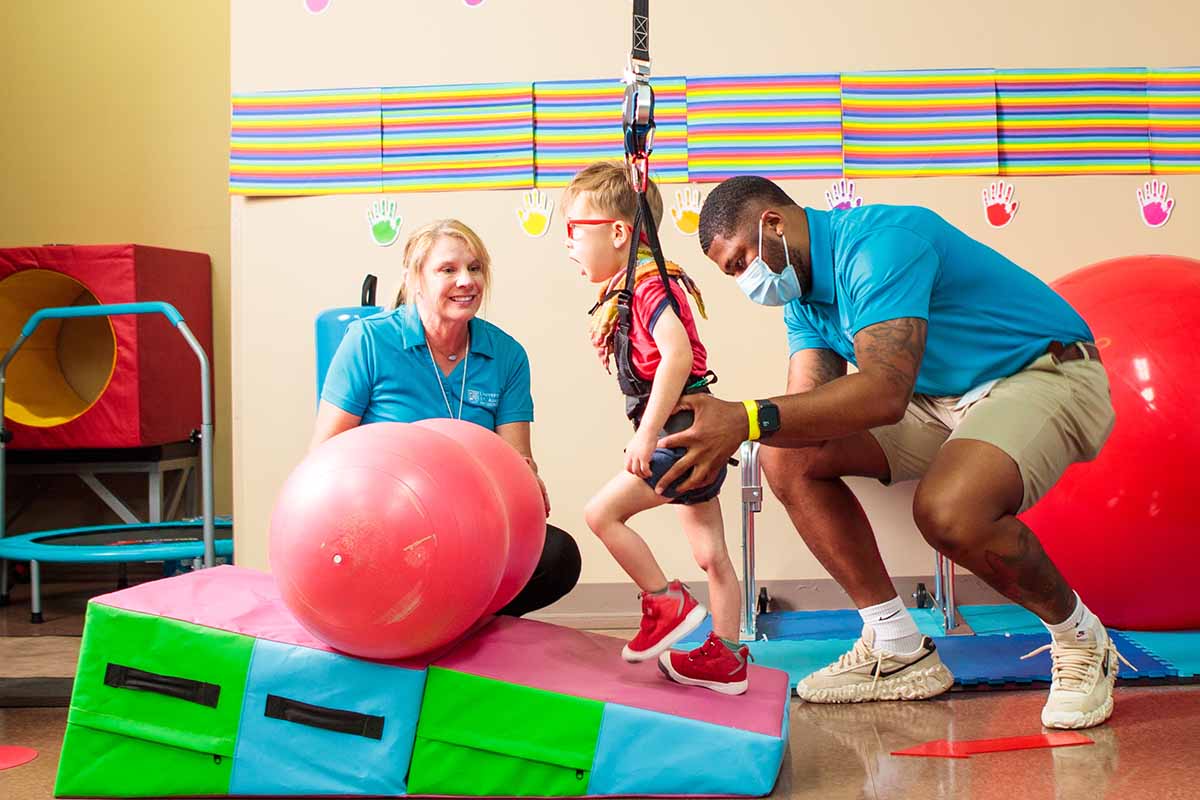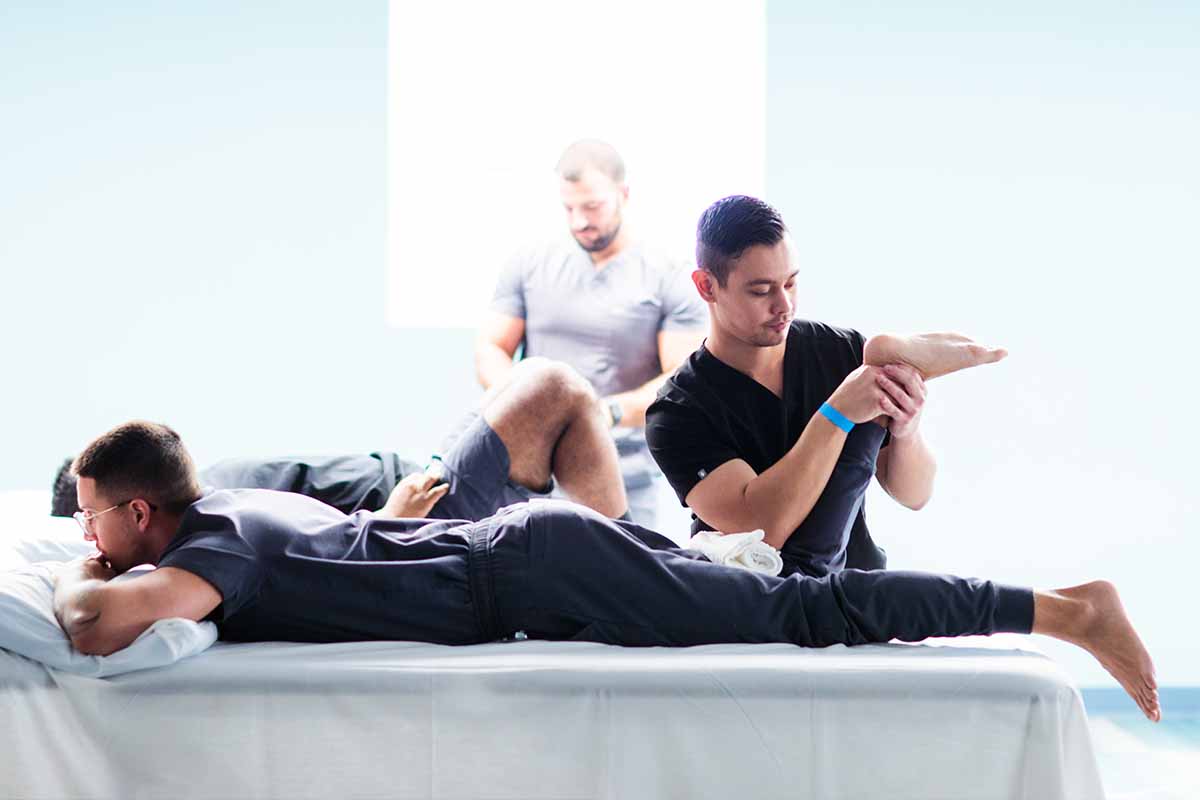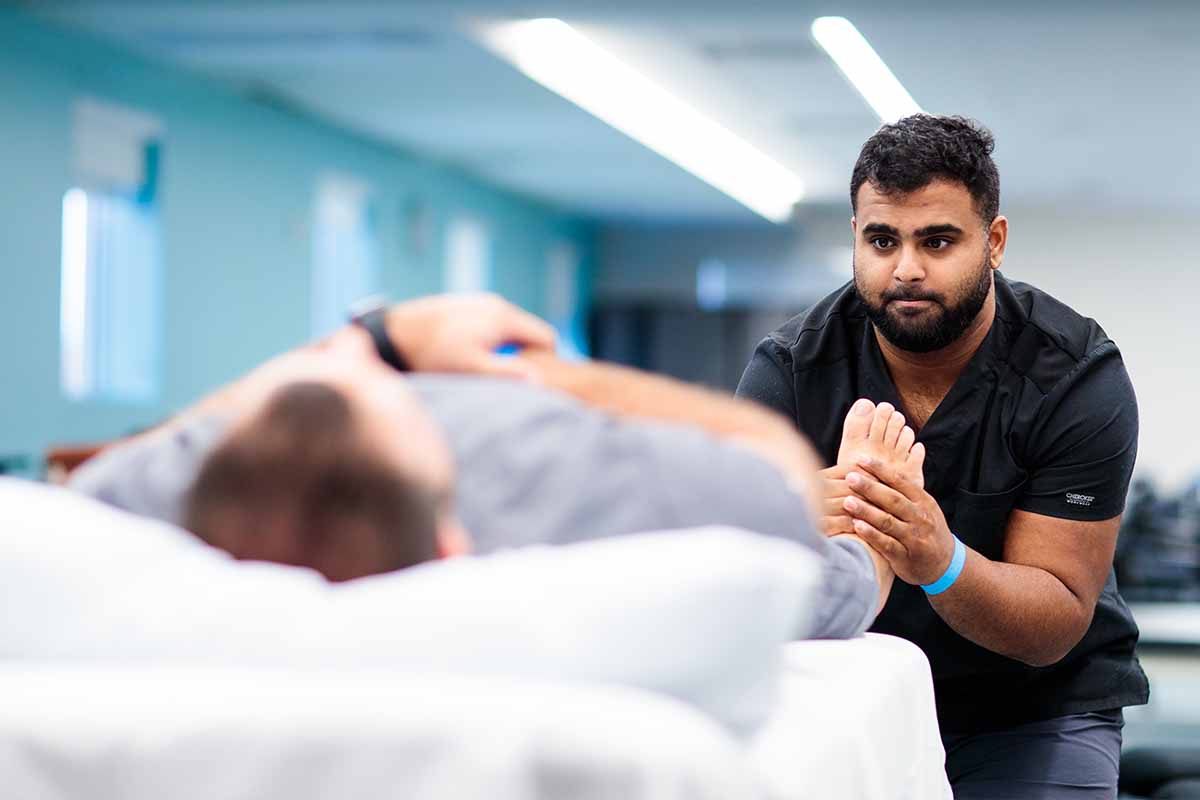
As a thought leader in simulation for healthcare education, USAHS was recently invited to demonstrate our simulation technology and best practices to members of the Welsh government. Seven commissioners from the department that regulates education in Wales joined USAHS simulation experts over videoconference to view a two-hour showcase of our face-to-face and virtual simulation methods. The demonstration highlighted the state-of-the-art equipment in the Center for Innovative Clinical Practice (CICP) on our campus in St. Augustine, Florida, where entry-level rehabilitative sciences students work together across disciplines to solve clinical problems for mock patients.
The unlikely partnership between USAHS and the Welsh officials evolved through the connections of Helen Carey, PhD, MSc Adv OT, OTR/L, who joined St. Augustine’s occupational therapy faculty as an associate professor in March 2020. Dr. Carey came to us from Glyndwr University in Wales, where she worked closely with Welsh specialists in education simulation. Recently, Dr. Helen Carey has been promoted to Interim Academic Program Director of the OT programs on the St. Augustine, FL campus.
During her years at Glyndwr, Dr. Carey also served as a guest faculty member at USAHS, collaborating from 2017 to 2020 with former faculty member Kelly Layne, OTD, MOT. The two professors ran synchronized case study sessions that helped their students gain insight into the occupational therapy context of their respective countries. They began using a Double 3 telepresence robot during simulations to show students this innovation in telehealth technology. Double robots are now a feature of all USAHS simulation labs. Hearing about this use of robotics in simulation particularly sparked the Welsh commissioners’ interest.
“Part of my reason for wanting to work at USAHS was its high-quality delivery of simulation teaching and learning,” Dr. Carey says. “The commissioners requested when I arrived here that we build a shared learning collaboration between USAHS and themselves.”
Dr. Carey reached out to CICP manager Elisabeth McGee, DPT, MOT, PT, OTR/L, to ask if her team could demonstrate the University’s infrastructure and best practices for delivering simulation. “I explained to the commissioners how I am able to consider an idea and then how the team of people of multiple skill sets helps me build that idea into a quality simulation learning experience,” Dr. Carey said.
Emily Frank, MS, OTD, OTR, Manager of Simulation Education and Innovation Initiatives, worked with Drs. Carey and McGee to create the CICP showcase event, supported by clinical simulation coordinator Mechelle Roy and simulation technician Dan Caldarera. They highlighted how an idea from faculty is developed into a high-quality learning experience for our students, illustrated by examples of virtual and face-to-face sims. They also discussed how faculty and staff develop interprofessional simulations and integrate simulations into their curricula.
Responses were enthusiastic. “The infrastructure within your organization for simulation educational experience is certainly something we see as very positive to learn from,” one commissioner said. Our Welsh colleagues plan to give a reciprocal presentation to our CICP team soon.
The session concluded with a rich discussion about how the two groups can further collaborate in the future. OT and PT students at Glyndwr University will share virtual simulation experiences with their counterparts on the St. Augustine campus next term. “We are hoping to extend this collaboration further with other universities in Wales,” Dr. Carey says. “This enables our students to learn through simulation in both an interprofessional and international context.”









%20%7C%20USAHS&_biz_n=0&rnd=256810&cdn_o=a&_biz_z=1744189332550)

